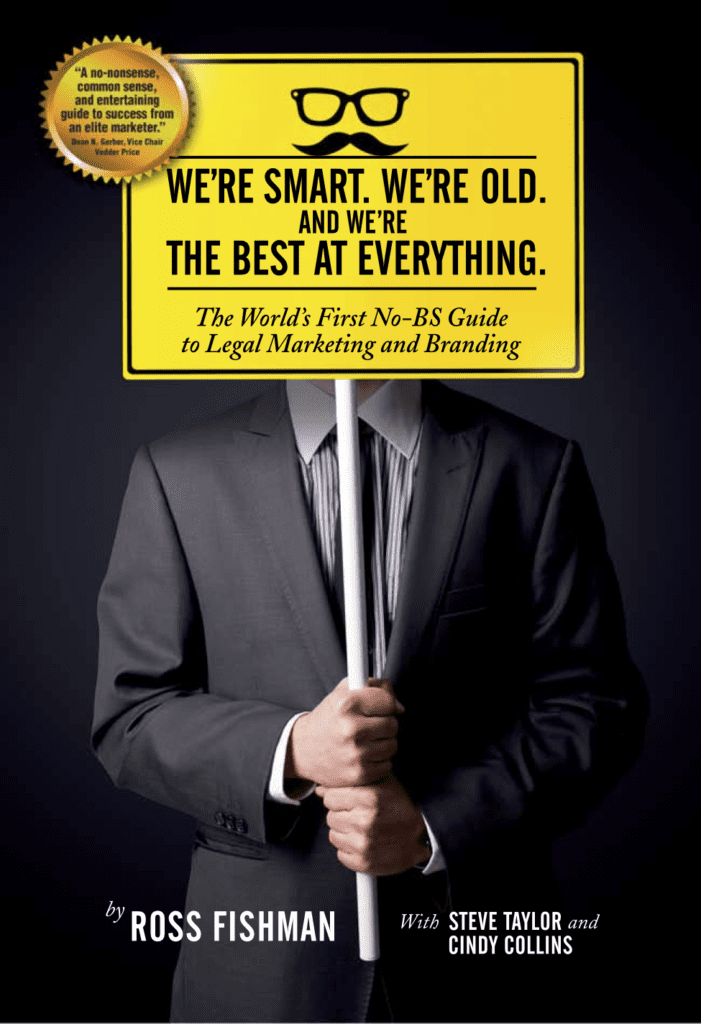Would you hire an CPA firm because it has “a combined 150 years of experience”?
And if so, why?

Ohhhh, I get it — you are aggregating every single one of your lawyers’ total years of experience into a single figure.
How does a combined number help provide better technical skills or service to clients?
I don’t care about that number — not unless one of your lawyers personally has 90 years in practice. Because HE would be a darned-experienced lawyer.
If I have a complex legal matter, I’d prefer one lawyer with 25 years of experience over 25 first-year associates any day — although technically each has 25 “total” years of experience. The only exception might be if you were competing in a Tug of War at a law firm picnic. In that situation, I’ll take twenty-five 26-year-olds over one 51-year-old lawyer.
In the example below from a small-firm website, do these “two partners” each have 25 years’ experience? Or are they one first-year lawyer working for an 80-year-old lawyer who has 49 years experience? And really, why should clients care anyway?

Or this example, which listed how many years of experience each of the four lawyers had, ranging widely from 2-41 years — technically “bring[ing] more than 75 years.”

Can we agree to eliminate the use of that empty, arguably misleading promise and instead find a more meaningful differentiator?
We worked recently with a 225-year old law firm, New York’s Cooper Erving & Savage.
No, really — they’ve been in consecutive, unbroken operation for over 225 years. They’re the second-oldest law firm in the nation. Now THAT is a firm that can credibly discuss its years in practice!

Whereas this type of thing isn’t helpful:

or this:
![]()
Make sense? Do you agree?
——————————
Need a new brand or website for your own firm?
Contact Ross now at: ross [at] fishmanmarketing.com or +1.847.921.7677.
Download a free copy of his best-selling strategy and branding book, “We’re Smart. We’re Old. And We’re the Best at Everything.” here or buy an actual book on Amazon here.
Do your lawyers need marketing training or a dynamic speaker at a firm retreat, either live or via webinar? Ross is one of the legal profession’s most-popular marketing and CLE presenters. Here’s a link to a video of Ross in action.



